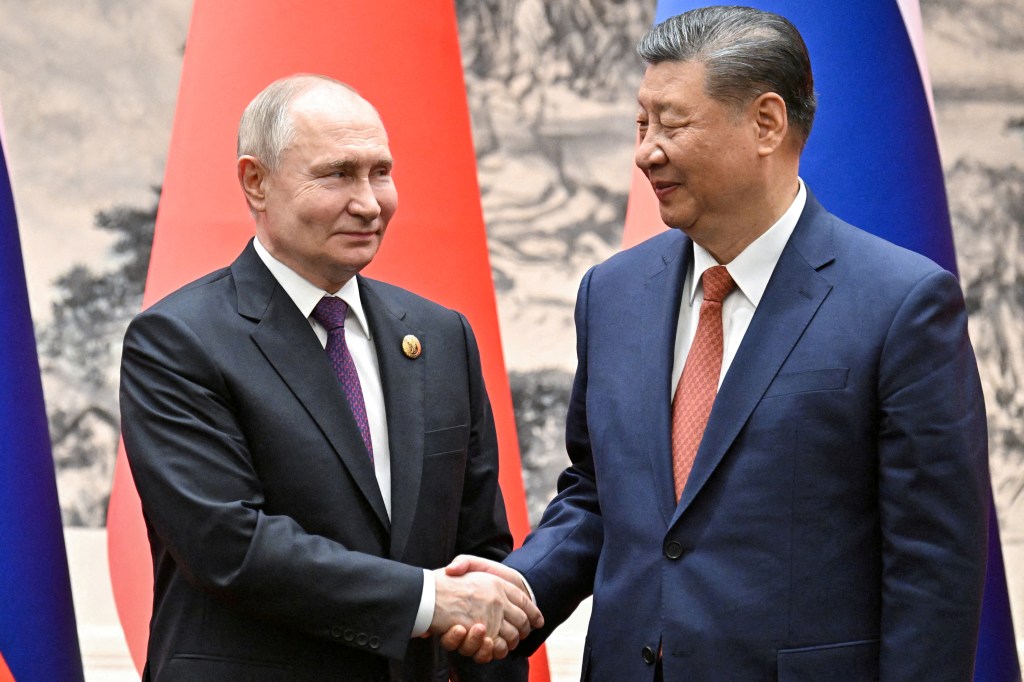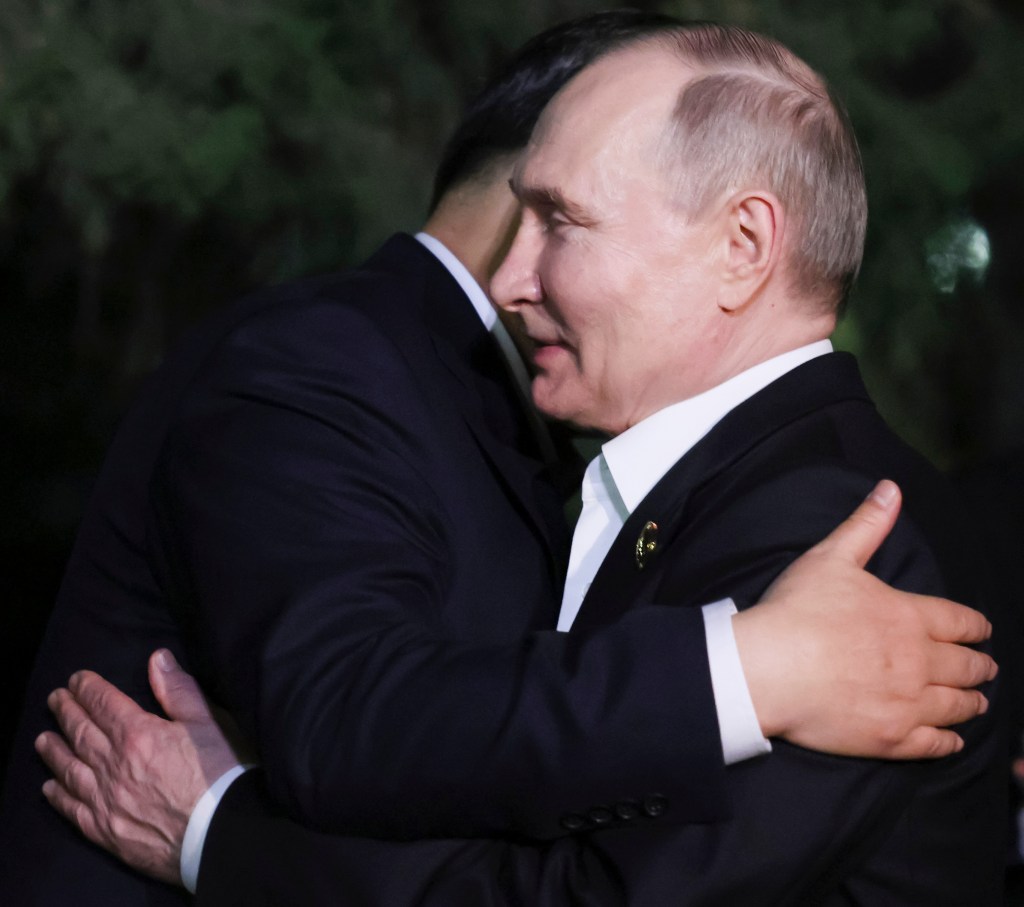Putin and Xi’s bro-hug proves that fight for Ukraine is same as fight against China
Vladimir Putin’s visit to Beijing last week, culminating in his awkward bro-hug with Xi Jinping, should put to rest two misguided narratives about America’s relationship with China and the war in Ukraine.
The first piece of conventional wisdom, prevalent in Foggy Bottom as well as in many Western European capitals, posits that there is still space for turning China into a responsible stakeholder in the international system.
The United States might be destined for a century of strategic competition with China, the argument goes, but we also need China as a partner for trade and for solving global challenges such as climate change.

The problem is, as last week’s summit illustrates, that China is not a good-faith partner.
Whatever assistance the West has provided to the beleaguered Ukraine, Beijing has done the same for Russia – providing technology, financial backing, intelligence, and, perhaps most importantly, propaganda.
From TikTok to generously funded influence operations on university campuses, including the famous Confucius Institutes, China is seeking to destabilize US politics, and sow discord and chaos.
The answer is to start treating China consistently as a rogue state, central to the new axis of evil spanning from Moscow, via Tehran and Beijing, to Pyongyang.
For that, the United States will need effective deterrence and also a strengthening of our economic partnerships with Europe and Asian allies, not an increase in our economic and technological ties to China.

The second narrative, as pernicious as the first one but more prevalent in Republican circles, is based on the illusion that the United States can successfully confront China without simultaneously responding to the war that Russia, China’s “no-limits” partner, has unleashed against Ukraine.
The idea that focusing on China requires sacrificing Ukraine and conceivably our NATO commitments makes no sense in the light of the fact that if US credibility crumbles, it crumbles everywhere – not just in one geographic theater. If helping Ukraine for “as long as it takes” means providing limited military assistance for three years but no longer, then our allies and foes alike will plan accordingly.
Get opinions and commentary from our columnists
Subscribe to our daily Post Opinion newsletter!
Thanks for signing up!
Policymakers in Taiwan, Korea, and Japan are visibly anxious about our staying power in Ukraine and will trust us a lot less if we abandon Kyiv. In such circumstances, they will also make arrangements for their own security that we may not like.
Such as nuclear proliferation and even accommodation and appeasement with China, at the expense of these countries’ long-standing ties to the United States.
An effective alliance against China requires bringing our European allies onboard. The discussion about the EU’s future relationship is ongoing but President Emmanuel Macron’s effort to engage with Xi at his recent state visit in Paris has come across as a flop, strengthening the position of China hawks across the continent.
More importantly, a Europe weakened by Ukraine’s defeat, dealing with potentially tens of millions of refugees and an Eastern flank exposed to further Russian aggression would not be in a position to help at all in America’s effort to contain China.
Should the United States renege on its role in Europe’s security architecture, as advocated by those who push for a ruthless prioritization of the Chinese threat, it’s hard to imagine Europeans would feel particularly inclined to do so either.
To say that threats to America’s security are all connected may sound like a cliché but that does not make it any less true. The battle for Ukraine IS part of our battle against China.
As the Putin-Xi meeting illustrates, our enemies share important strategic goals. America’s lack of resolve and inability to resolve – from Ukraine through our vacillation on Israel to our unwillingness to respond to the Iran-sponsored Houthi piracy in the Red Sea – give the Chinese Communist Party every reason to believe that the future is theirs, not America’s.
It is past time we disabused them of that notion, and the best place to start is in Ukraine.
Dalibor Rohac is a senior fellow at the American Enterprise Institute in Washington DC. Twitter: @DaliborRohac.